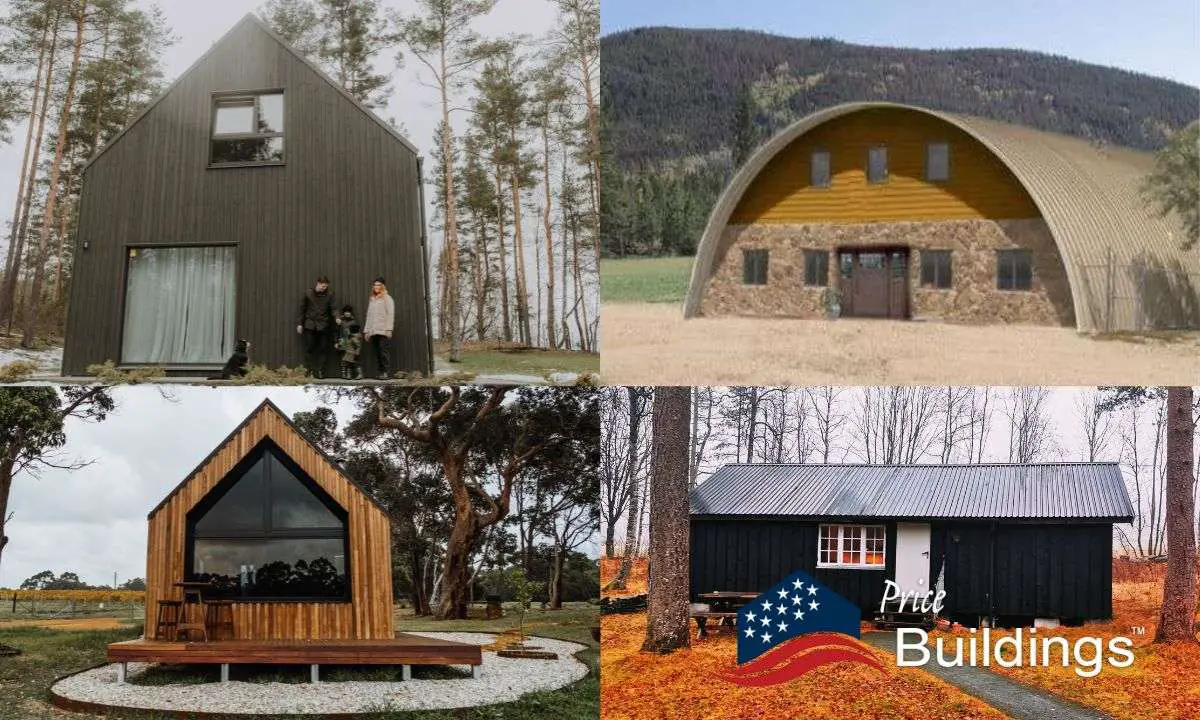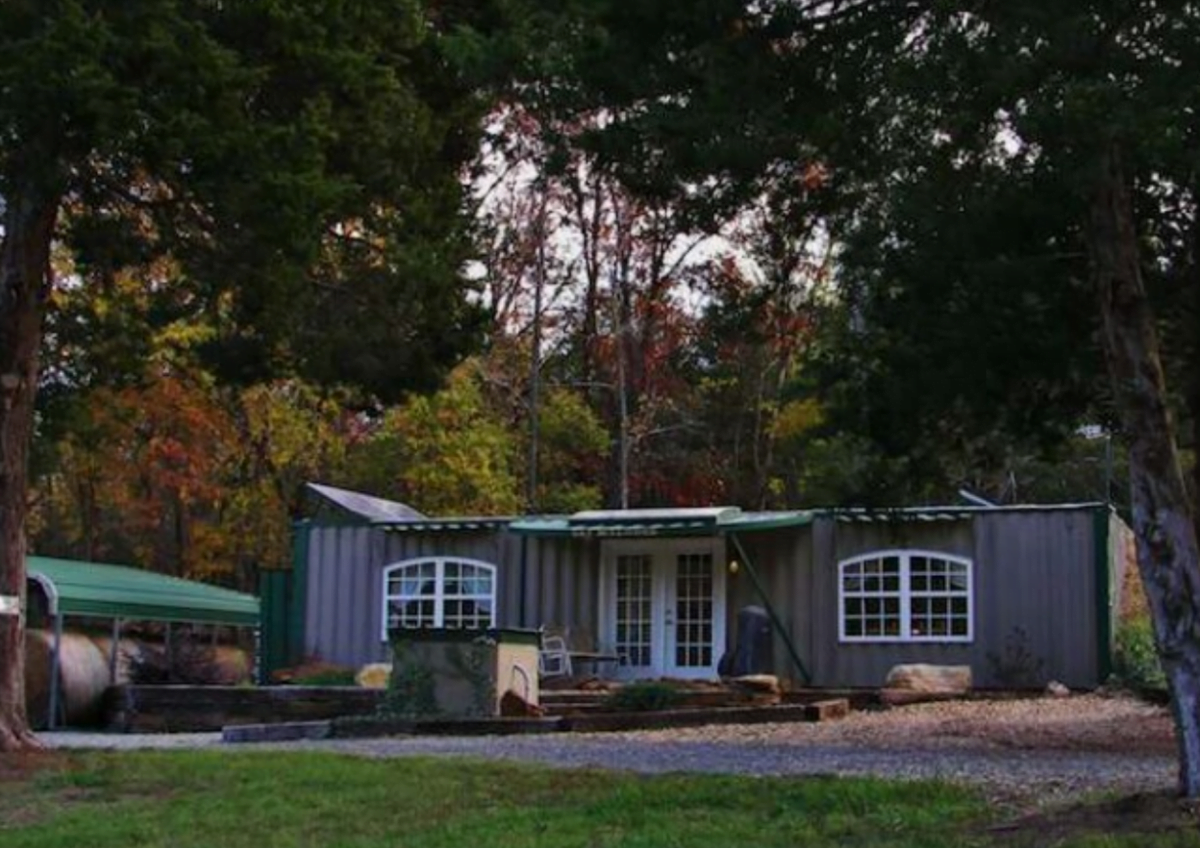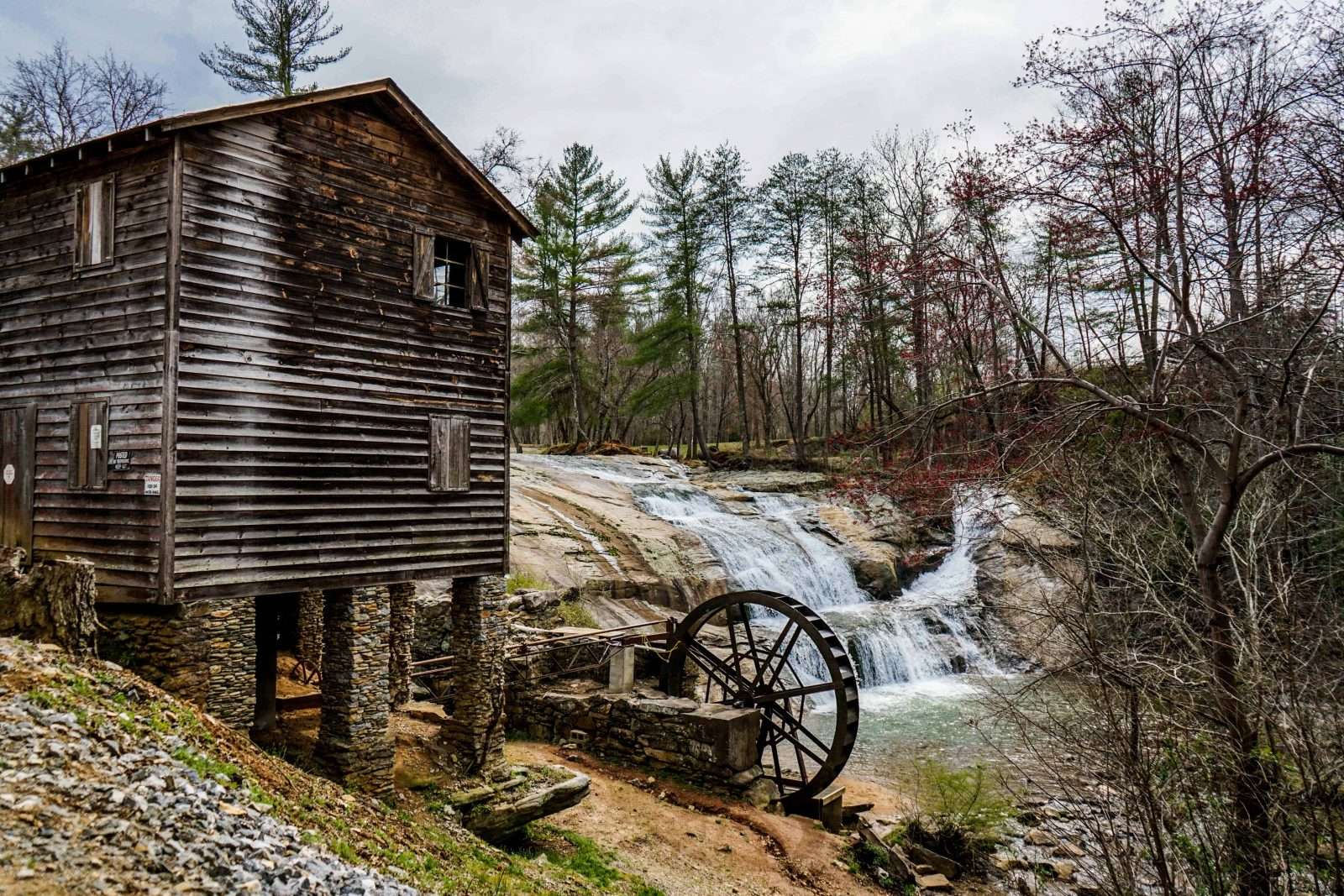If you’re looking to embrace a sustainable lifestyle and live off-grid, Oklahoma may just be the perfect place for you. With several off-grid communities and a range of suitable locations, this state offers the opportunity to disconnect from the grid while still having access to the support of a like-minded community. The best places for off-grid living in Oklahoma include counties like Oklahoma, Comanche, Rogers, Cimarron, Latimer, Osage, and Pushmataha. Land prices are relatively affordable, allowing you to find the perfect piece of land to call your own. Oklahoma’s diverse landscapes and abundance of natural resources, such as fertile soil and water sources, provide a solid foundation for self-sufficient living. Just be sure to consider factors like water sources, solar exposure, available land for farming, proximity to essential services, and local regulations before making your move. Explore the possibilities of off-grid living in Oklahoma and experience the freedom and sense of community it has to offer.
Best Places for Off-Grid Living in Oklahoma
When it comes to off-grid living, Oklahoma offers a variety of options for those seeking a sustainable and self-sufficient lifestyle. Whether you’re looking for a place to build your own off-grid home or join an existing off-grid community, there are several counties in Oklahoma that stand out as the best places for off-grid living.
Oklahoma County
Oklahoma County is one of the top choices for off-grid living in Oklahoma. With a population of over 800,000, it offers a balance of rural and urban living. You can find affordable land here, and the area provides access to essential services such as hospitals and grocery stores. Plus, you’ll still have the opportunity to enjoy the benefits of off-grid living, thanks to its proximity to nature and open spaces.
Comanche County
Comanche County is a great option for off-grid living due to its diverse landscapes. From rolling hills to plains, this county offers various terrains for those looking to live off-grid. It also boasts abundant natural resources, including fertile soil for farming and access to water sources. With its affordable land prices and stunning landscapes, Comanche County is an attractive choice for off-grid enthusiasts.
Rogers County
Situated in northeastern Oklahoma, Rogers County is known for its natural beauty and picturesque landscapes. If you’re dreaming of living off the grid surrounded by lush forests and scenic lakes, this county is an excellent option. In addition to its natural resources, Rogers County also offers affordable land prices, making it an ideal location for off-grid living.
Cimarron County
For those seeking a truly remote and secluded off-grid experience, Cimarron County is worth considering. Located in the western part of the state, it is the least populated county in Oklahoma. With vast stretches of untouched land and wide-open spaces, Cimarron County allows for complete privacy and tranquility. However, it’s important to note that the lack of nearby essential services should be taken into consideration when choosing this location.
Latimer County
Latimer County offers a unique setting for off-grid living with its rugged terrain and abundant natural resources. It is known for its mining history and vast, untouched forests. With affordable land prices and ample opportunities for self-sufficiency, Latimer County is a great choice for off-grid enthusiasts looking for a diverse and scenic location.
Osage County
Located in northeastern Oklahoma, Osage County is known for its stunning landscapes and natural beauty. With its rolling hills, lush forests, and access to water sources like lakes and rivers, it provides the perfect backdrop for off-grid living. The county offers affordable land prices and a strong sense of community, making it an appealing option for those looking to embrace a sustainable lifestyle.
Pushmataha County
If you’re looking for a rural retreat with plenty of natural resources, Pushmataha County might be the perfect fit for your off-grid living dreams. Situated in southeastern Oklahoma, this county offers breathtaking scenery, including mountains, rivers, and forests. With affordable land prices and a slower pace of life, Pushmataha County provides an ideal setting for those seeking a self-sufficient and off-grid lifestyle.
Advantages of Off-Grid Living in Oklahoma
When it comes to off-grid living, Oklahoma offers numerous advantages that make it an appealing choice for those looking to disconnect from the grid. From affordable land prices to diverse landscapes and access to off-grid communities, here are some key advantages of off-grid living in Oklahoma.
Affordable Land Prices
One of the major advantages of off-grid living in Oklahoma is the affordable land prices. Compared to many other states, the cost of land in Oklahoma is relatively cheap, making it easier for individuals or families to purchase property for their off-grid homestead. This affordability allows for more financial freedom when it comes to realizing your off-grid living dreams.
Diverse Landscapes and Natural Resources
Oklahoma offers a diverse range of landscapes, from rolling hills to forests and lakes. This diversity allows for various opportunities when it comes to off-grid living. Whether you prefer the seclusion of remote areas or the convenience of being close to essential services, Oklahoma has a location that suits your preferences. Additionally, the state is rich in natural resources, including fertile soil for farming and access to water sources. These resources are essential for sustainable off-grid living.
Off-Grid Communities and Support
Another advantage of off-grid living in Oklahoma is the presence of off-grid communities. These communities provide a sense of support and camaraderie for individuals embarking on the off-grid lifestyle. By joining an existing off-grid community, you can benefit from shared resources, collective knowledge, and a supportive network of like-minded individuals. These communities often organize events, workshops, and initiatives that promote self-sustainability and foster a strong sense of community.

Factors to Consider for Off-Grid Living in Oklahoma
While off-grid living offers many advantages, there are several factors to consider when choosing a location in Oklahoma. From water sources to solar exposure and available land for farming, these factors will greatly impact your off-grid experience. Additionally, proximity to essential services and local regulations should also be taken into account. Here are some key factors to consider when selecting a place for off-grid living in Oklahoma.
Water Sources
Access to reliable and sustainable water sources is essential for off-grid living. When considering a location in Oklahoma, it’s crucial to assess the availability of water sources such as rivers, lakes, or wells. Additionally, you should consider the quality and reliability of the water source to ensure it meets your needs for drinking, cooking, and irrigation.
Solar Exposure
When living off-grid, harnessing solar power is often a common method for generating electricity. It’s important to evaluate the solar exposure of a potential off-grid location in Oklahoma. A south-facing orientation and minimal shading are highly desirable to maximize the effectiveness of solar panels and ensure an adequate supply of electricity.
Available Land for Farming
For many off-grid enthusiasts, the ability to grow their own food is a top priority. When selecting a location in Oklahoma, consider the availability of arable land for farming or gardening. Assess the soil quality and fertility as well as the growing conditions for different types of crops. Access to land suitable for agriculture can greatly contribute to self-sufficiency and sustainable living.
Proximity to Essential Services
While off-grid living often means seeking a more remote location, it’s still important to consider proximity to essential services. Access to healthcare facilities, grocery stores, and other crucial services is necessary to ensure a comfortable and secure off-grid lifestyle. Before settling on a location, assess the distance and convenience of these services in relation to your chosen off-grid site.
Local Regulations and Permits
It’s essential to thoroughly research the local regulations and permits related to off-grid living in Oklahoma. Some areas may have specific building codes or zoning regulations that may restrict certain off-grid practices. Understanding the legal requirements and limitations beforehand will help you navigate the process and avoid any potential issues later on. It’s also worth contacting local authorities or consulting with experts familiar with off-grid living in Oklahoma for guidance.

Finding Suitable Land for Off-Grid Living in Oklahoma
Finding suitable land is a crucial step in establishing an off-grid lifestyle in Oklahoma. The state offers a range of options, but it’s important to consider factors beyond just affordability. Land prices, accessibility, natural resources, and crime rates are some key aspects to consider when searching for land for off-grid living.
Land Prices in Oklahoma
Oklahoma boasts relatively affordable land prices compared to other states, making it an attractive option for those pursuing off-grid living. However, it’s essential to strike a balance between cost and other essential factors when choosing land. The cheapest piece of property may not offer the access to water sources or necessary services you need. It’s important to thoroughly evaluate all aspects of the land before finalizing a purchase.
Avoiding High Crime Rate Areas
While Oklahoma provides a wide range of off-grid opportunities, it’s crucial to consider crime rates when selecting a location. Areas with high population density often have higher crime rates. By avoiding these areas, you can increase your safety and security while living off the grid. It’s recommended to research crime statistics and consult with local authorities to identify safer regions for your off-grid lifestyle.

Researching and Understanding Regulations for Off-Grid Living in Oklahoma
When considering off-grid living in Oklahoma, it’s essential to research and understand the specific regulations and permits that may apply. Off-grid living may involve alternative methods of waste management, water collection, or power generation, which can be subject to local regulations. Here are some important factors to consider when researching regulations for off-grid living in Oklahoma.
Specific Regulations and Permits
Each county and municipality in Oklahoma may have specific regulations and permits related to off-grid living. It’s crucial to familiarize yourself with these regulations to ensure compliance and avoid any legal complications. Topics such as zoning, building codes, waste disposal, and renewable energy installations may be covered by local regulations. By researching and understanding these requirements, you can make informed decisions and plan accordingly.
Importance of Research
Due diligence and thorough research are key when it comes to off-grid living in Oklahoma. Start by familiarizing yourself with the specific regulations and permits related to your desired off-grid practices. Contact local authorities, join online forums or off-grid communities, and consult experts familiar with off-grid living in the state. Gathering as much information as possible will help you navigate the process, avoid potential setbacks, and ensure a smooth transition to your off-grid lifestyle.
Benefits of Off-Grid Communities in Oklahoma
For those seeking a sense of community and support while embracing an off-grid lifestyle, off-grid communities in Oklahoma offer numerous benefits. From access to natural resources to shared amenities and community support, these communities foster a strong sense of camaraderie and provide the necessary resources for sustainable off-grid living.
Access to Natural Resources
Off-grid communities in Oklahoma often have access to abundant natural resources, such as forests, lakes, and rivers. These resources provide opportunities for activities like hunting, fishing, hiking, and gathering wild edibles. By being part of an off-grid community, you can tap into these resources collectively, expanding your options for self-sufficiency and enhancing your connection with nature.
Shared Resources and Amenities
Living in an off-grid community means sharing resources and amenities with fellow community members. This can include shared tools, equipment, and infrastructure like renewable energy systems, wells, or communal gardens. By pooling resources, off-grid communities can increase efficiency, reduce costs, and create a more sustainable living environment for all members.
Community Support
One of the major benefits of off-grid communities in Oklahoma is the sense of community and support they provide. In these communities, individuals and families share similar goals and values, fostering a supportive environment. Community members often collaborate on projects, share knowledge and skills, and provide assistance when needed. This sense of camaraderie can greatly enhance the off-grid living experience, making it easier to navigate challenges and celebrate successes together.
In conclusion, Oklahoma offers a range of options for off-grid living, from affordable land prices to diverse landscapes and off-grid communities. When choosing a location, consider factors such as water sources, solar exposure, available land for farming, proximity to essential services, and local regulations. Thorough research and understanding of regulations are essential to ensure compliance and avoid any legal complications. Whether you choose to embark on an independent off-grid lifestyle or join an off-grid community, Oklahoma provides a welcoming environment for sustainable and self-sufficient living.



